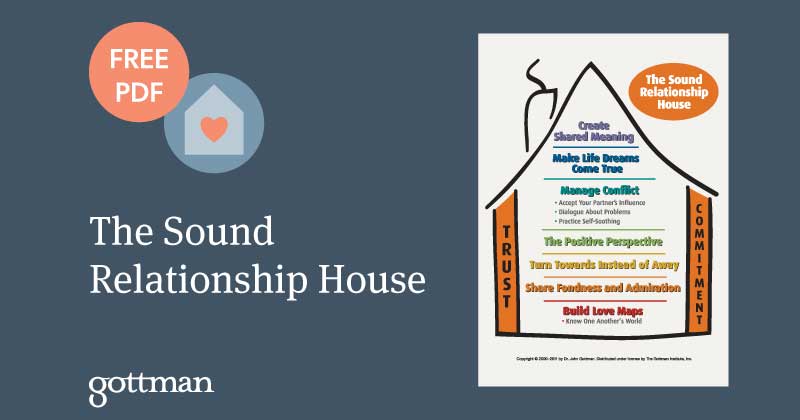Seth and Kayla, both in their late forties and married for fifteen years, are considering divorce. “I’m done with this marriage,” complains Kayla. “I feel unloved and rejected by Seth, we don’t have an emotional connection and rarely have sex anymore.”
Seth puts it like this: “Kayla loves the kids more than me and she’s always on the attack. She keeps threatening to leave, and that might be the best option.”
Many couples like Seth and Kayla are ready to throw in the towel and want quick solutions to save their marriage. Truth be told, this is a common problem, but the solutions are never easy.
A Radical Shift in Mindset
The good news is that if you are willing to put effort into rescuing your marriage, there are things you can do that can give you a fresh start. Breaking the cycle of an unhappy relationship dynamic requires a radical shift in mindset.
Taking responsibility for your part in the conflict or dispute is a great starting point. One person’s ability to do this can change the entire dynamic of the relationship.
Studies show that the most common reason why couples develop serious difficulties is that one or both partners withdraw due to feelings of hurt, anger, and resentment. In this study of 14,000 participants, Dr. Paul Schrodt found that women were usually (but not always) the ones who demanded or pursued and men tended to withdraw or distance.
Stop the Blame Game
Many couples play the blame game, leading to a pursuer-distancer dance that causes one partner to chase the other around. After a while, they are no longer addressing the issue at hand and enter into a vicious cycle of resentment, frustration, and anger.
Relationship expert Dr. Harriet Lerner explains that the recipe for failure in a marriage is waiting for the other person to change. Rather than giving up on their marriage, couples need to lean toward each other. She writes, “It’s the dissatisfied partner who usually is motivated to change. If you don’t take some new action on your own behalf, no one else will do it for you.”
While it’s natural to want to give up when your partner becomes distant, reacting expands the divide between you. Instead, Dr. Lerner recommends that you take responsibility for warming things up and increase positive reinforcement. You can say things like, “You’re so thoughtful to clean the kitchen” which highlights your partner’s positive qualities and things you admire about them.
Practicing what Dr. John Gottman calls emotional attunement can help you stay connected in spite of your differences. This means “turning toward” one another, listening, and showing empathy rather than “turning away.” Dr. Gottman recommends a 5:1 ratio of interactions – meaning for every negative interaction, you need five positive ones.
Dr. Gottman discovered in over 40 years of research with thousands of couples that the number one solution to marital problems is to get good at repair. He calls it the “secret weapon” of emotionally intelligent couples.
10 things to try before giving up on your marriage, based on the work of Dr. John Gottman
1. Complain without blame
Have you developed a habit of criticizing your partner? Talking about specific issues will reap better results than attacking your partner. For instance, a complaint is: “I was worried when you didn’t call me. We agreed that we’d check in when one of us was running late.” Versus a criticism: “You never follow through, you’re so selfish.”
2. Repair conflicts skillfully
Don’t put aside resentments that can destroy your relationship. Dr. Gottman’s research informs us that 69% of conflicts in a marriage never get resolved, so the focus needs to be managing them successfully. Bouncing back from disagreements rather than avoiding conflict is key because couples who strive to avoid it are at risk of developing stagnant relationships.
3. Stay focused on the issues at hand
Ask yourself: What am I trying to accomplish? Avoid name-calling and don’t attack your partner personally. Remember anger is usually a symptom of underlying hurt, fear, and frustration. So ask questions that go deeper to understand the positive need your partner is seeking. Avoid defensiveness and showing contempt for your partner (rolling your eyes, ridicule, name-calling, sarcasm, etc.).
4. Boost up physical affection
According to author Dr. Kory Floyd, holding hands, hugging, and touching can release oxytocin (the bonding hormone) that causes a calming sensation. Studies show that it’s released during sexual orgasm and affectionate touch as well. Physical affection also reduces stress hormones – lowering daily levels of the stress hormone cortisol.
5. Nurture fondness and admiration
Remind yourself of your partner’s positive qualities – even as you grapple with their flaws – and express your positive feelings out loud several times each day. Search for common ground rather than insisting on getting your way when you have a disagreement. Listen to his/her point of view and avoid shutting yourself off from communication.
6. Spend time with your partner on a daily basis
Try a variety of activities that bring you both pleasure. Kyle Benson recommends that couples adopt a new way of structuring their “How was your day, dear?” conversation that shows empathy, expresses understanding, and validates emotions. Feeling like your partner is on your side can help you to sustain a deep, meaningful bond and a “we against others” attitude.
7. Communicate honestly about key issues in your relationship
Be sure to be forthcoming about your concerns and express your thoughts, feelings, and wishes in a respectful way. Resentment can build when couples sweep things under the rug, so be vulnerable and don’t bury negative feelings.
8. Don’t allow wounds to fester
Challenge your beliefs and self-defeating thoughts about your partner’s behavior when you find it to be negative. Listen to your partner’s side of the story. Are there times when you feel mistrustful or hurt even when he/she presents evidence to the contrary about your grievance?
9. Develop a Hurt-Free Zone policy
This term coined by author David Akiva refers to a period when criticism is not allowed. Without it, couples usually feel less defensive and so hurt feelings dissolve. Akiva writes: “Your prime directive right now is to eliminate the most toxic negative communication and reduce intense negative emotions for 3 to 4 weeks.”
10. Practice forgiveness
Forgiveness isn’t the same as condoning hurtful actions but it will allow you to move on. Try to remember you are on the same team. Accept that people do the best they can and try to be more understanding.
It is understandable that you might feel hurt, frustrated, resentful, or rejected if you perceive that your partner has checked out of your marriage. The next time you have a disagreement with him or her, stop second-guessing their reactions and examine your own responses. Instead of shutting down or becoming critical, adopt a resilient mindset and work on ways you can repair your relationship and get back on track.
How can you know you’re in a happy relationship that’s both good for your health and everyone around you? Can such a thing be measured? It can! Take this free relationship quiz and find out how well you know your partner.
The Gottman Relationship Adviser, the world’s first complete relationship wellness tool for couples, takes the guesswork out of improving your relationship. Measure your relationship health with a research-based self-assessment, then receive a tailored digital relationship plan proven to heal and strengthen your connection.
For an in-depth analysis of your relationship health check out the Gottman Assessment, a virtual relationship evaluation tool for couples.
Sign Up and Start Your Relationship Transformation
Get a free PDF when you sign up
Subscribe to Gottman Love Notes and get the latest on relationships, therapy, and much more from the experts. Receive a free PDF and access to special pricing on Gottman products every month.









